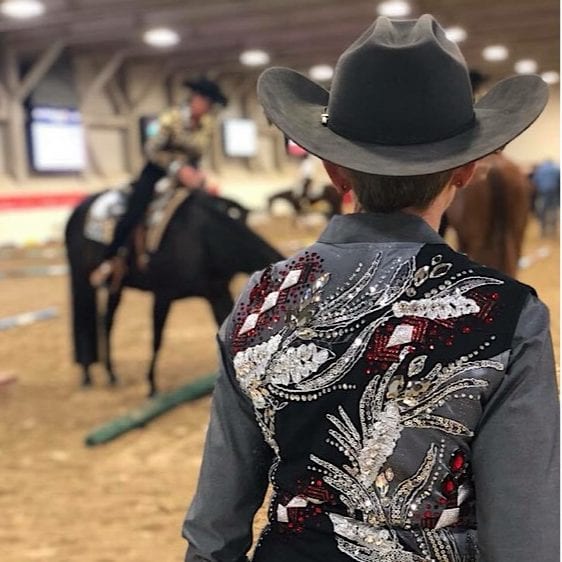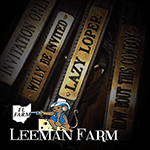We have all had one of those ‘woulda, coulda, shoulda’ thoughts from time-to-time.
Whether it is regretting to take more beneficial college classes, saving for retirement or not stopping to smell the roses when you were a young trainer – they say hindsight is 20/20.
No matter where we are on our life’s journey, we can all look back and say, ‘I wish I knew then what I know now.’
GoHorseShow was honored to chat with some of the top trainers in the industry and learn what their voices from the past were telling them now in hopes we can help others in the future.
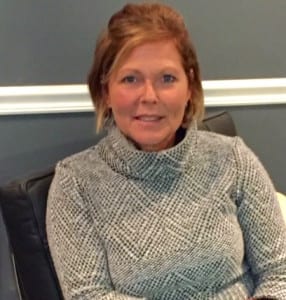 Debbi Trubee – I really wouldn’t change much. I learned about the actual business end of the industry through trial and error in some respects. You make mistakes when you’re young and hope not to repeat them. I definitely would have taken more business courses. While it’s great to be a very talented trainer or breeding manager, if you don’t know how to run a business, you will ultimately fail.
Debbi Trubee – I really wouldn’t change much. I learned about the actual business end of the industry through trial and error in some respects. You make mistakes when you’re young and hope not to repeat them. I definitely would have taken more business courses. While it’s great to be a very talented trainer or breeding manager, if you don’t know how to run a business, you will ultimately fail.
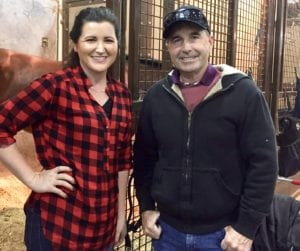 Dean Saul – I guess the one thing I could say about what I would change is to be open minded about the all around horse. In the early 80s, us pleasure trainers thought the only thing was the pleasure horse and if it didn’t work, then those horses were dumped. Knowing what I know now, I could’ve changed directions on some of those horses quicker and put them in a different discipline. But on the other hand, at that time, those disciplines we’re not where the money was, so we focused strictly on the money because there was so much money at that time where we were showing. I think if we could go back and incorporate the all-around horse when the money was so big and the people were so vested in spending money for young horses, the pleasure horse would still be at the top. There were so many horses that didn’t make it that people had spent tons of money on. If there was another discipline for them to excel in, then the owners would’ve stayed interested and excited about the horse business. The pleasure horse is still the foundation and the rock and to me the greatest horse on the planet because they can be so versatile. And that event has to keep striving so that the others will keep going.
Dean Saul – I guess the one thing I could say about what I would change is to be open minded about the all around horse. In the early 80s, us pleasure trainers thought the only thing was the pleasure horse and if it didn’t work, then those horses were dumped. Knowing what I know now, I could’ve changed directions on some of those horses quicker and put them in a different discipline. But on the other hand, at that time, those disciplines we’re not where the money was, so we focused strictly on the money because there was so much money at that time where we were showing. I think if we could go back and incorporate the all-around horse when the money was so big and the people were so vested in spending money for young horses, the pleasure horse would still be at the top. There were so many horses that didn’t make it that people had spent tons of money on. If there was another discipline for them to excel in, then the owners would’ve stayed interested and excited about the horse business. The pleasure horse is still the foundation and the rock and to me the greatest horse on the planet because they can be so versatile. And that event has to keep striving so that the others will keep going.
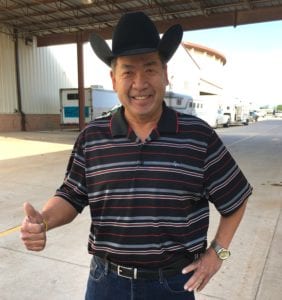 Tim Kimura – I should have learned how to protect the rights to all my trail patterns better – keep all the patterns from past years more organized. Learn to say no a little better, and take more time in my life to regroup, relax, recharge and enjoy something besides my work.
Tim Kimura – I should have learned how to protect the rights to all my trail patterns better – keep all the patterns from past years more organized. Learn to say no a little better, and take more time in my life to regroup, relax, recharge and enjoy something besides my work.
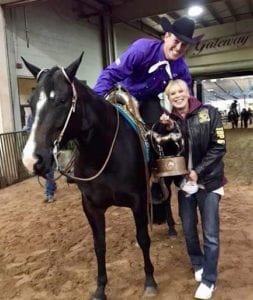 Micah Hansen – One thing is that I would have allowed the horses to find their class that best fits them instead of pigeonholing them into something they were not made for. The other would be that you can’t make certain people happy so just do your best and let your hard work show them what you can do for them.
Micah Hansen – One thing is that I would have allowed the horses to find their class that best fits them instead of pigeonholing them into something they were not made for. The other would be that you can’t make certain people happy so just do your best and let your hard work show them what you can do for them.
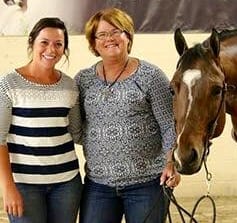 Kelley Roberts – In looking back, we wish we would have invested in real estate sooner. We bought our ranch when we were in our late 30’s. Also, we wish we would have had more children. Our sons are nine years apart, now ages 35 and 26. We could have had a couple more in between.
Kelley Roberts – In looking back, we wish we would have invested in real estate sooner. We bought our ranch when we were in our late 30’s. Also, we wish we would have had more children. Our sons are nine years apart, now ages 35 and 26. We could have had a couple more in between.
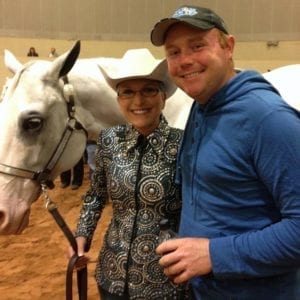 Blake Carney – Don’t worry so much about things that will happen in due time. Let things come to you and realize sometimes they won’t. In the end, all of these small things won’t be a big deal.
Blake Carney – Don’t worry so much about things that will happen in due time. Let things come to you and realize sometimes they won’t. In the end, all of these small things won’t be a big deal.
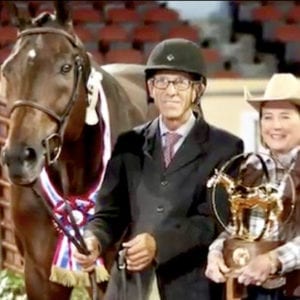 Jerry Erickson – Regarding the horses and my showing career, possibly not much. However from a business approach, I would have developed a better business plan. Save for retirement, etc.
Jerry Erickson – Regarding the horses and my showing career, possibly not much. However from a business approach, I would have developed a better business plan. Save for retirement, etc.
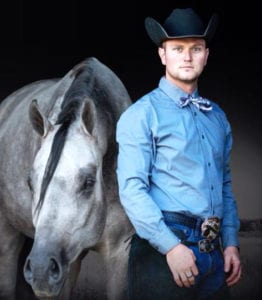 Cooper Evans – I wish I would have realized from the beginning that this is a business first and a hobby second. It is important to maintain the business to succeed as a trainer. Also, that part of business is knowing when to close the day to maintain a good home-life balance. You have to learn to tailor your training not only to the horses abilities but also the owner’s desires, being realistic and up front that not every horse was born to be a world champion. It may be necessary to compromise with owners to maintain realistic expectations and find out what winning looks like to them.
Cooper Evans – I wish I would have realized from the beginning that this is a business first and a hobby second. It is important to maintain the business to succeed as a trainer. Also, that part of business is knowing when to close the day to maintain a good home-life balance. You have to learn to tailor your training not only to the horses abilities but also the owner’s desires, being realistic and up front that not every horse was born to be a world champion. It may be necessary to compromise with owners to maintain realistic expectations and find out what winning looks like to them.
 Farley McLendon – I would’ve given up my non-pro card sooner, but, honestly, nothing else. I believe everything happens for a reason.
Farley McLendon – I would’ve given up my non-pro card sooner, but, honestly, nothing else. I believe everything happens for a reason.
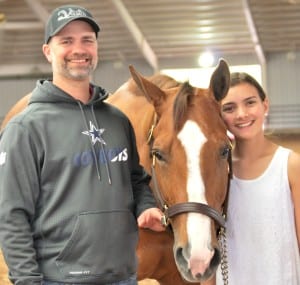 Brad Jewett – Don’t make it so hard. Buy good horses and let them teach you a thing or two. It’s awesome to feel what a great horse can teach you in the way of feel, timing and rhythm.
Brad Jewett – Don’t make it so hard. Buy good horses and let them teach you a thing or two. It’s awesome to feel what a great horse can teach you in the way of feel, timing and rhythm.
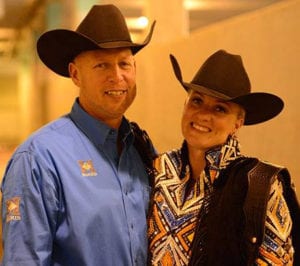 Katy Jo Zuidema – The only time I’ve ever done something on a horse I regret is when I asked one to do something it couldn’t realistically perform. I was young and ambitious and thought with harder work or more effort or if I had more knowledge, I could make it better. But, I wasn’t smart enough to see that I just wasn’t putting the horse in a position to succeed, and I was fighting a battle that neither me nor the horse could win. Now, I trust my instincts. If I try and try and it’s just not working, instead of pushing harder, I give it a different job. An example, “this horse can’t carry itself enough to do the western pleasure, but when I kick it forward, it hits a great rhythm so I make it a western rider/all around horse instead. Then, it becomes a successful horse.” See, to me that’s common sense, and it doesn’t make me a failure because I couldn’t make it a western pleasure horse. But, when I was young, I didn’t have the confidence to trust my instincts or the courage to say that to my client, especially when it wasn’t what they wanted to hear. I can say 100% of the time thus far, I have never regretted telling people my gut opinion.
Katy Jo Zuidema – The only time I’ve ever done something on a horse I regret is when I asked one to do something it couldn’t realistically perform. I was young and ambitious and thought with harder work or more effort or if I had more knowledge, I could make it better. But, I wasn’t smart enough to see that I just wasn’t putting the horse in a position to succeed, and I was fighting a battle that neither me nor the horse could win. Now, I trust my instincts. If I try and try and it’s just not working, instead of pushing harder, I give it a different job. An example, “this horse can’t carry itself enough to do the western pleasure, but when I kick it forward, it hits a great rhythm so I make it a western rider/all around horse instead. Then, it becomes a successful horse.” See, to me that’s common sense, and it doesn’t make me a failure because I couldn’t make it a western pleasure horse. But, when I was young, I didn’t have the confidence to trust my instincts or the courage to say that to my client, especially when it wasn’t what they wanted to hear. I can say 100% of the time thus far, I have never regretted telling people my gut opinion.
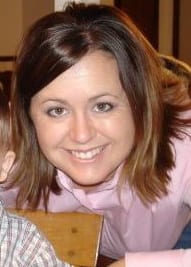 Julie Voge – Not that I was ever dishonest, but over time, honesty has proved itself over and over again that it will always bring you more business and great clients.
Julie Voge – Not that I was ever dishonest, but over time, honesty has proved itself over and over again that it will always bring you more business and great clients.
 Jane Backes – If you have, say $10,000 to buy broodmares with, buy one great proven producer as opposed to three to four great granddaughters of a stud that was famous that have never produced. Do not skimp on the mare, she is, in my opinion, 65% of the foal and it costs the same to raise a nice one as it does a great one. 2) If you plan to show your own horse, pick a trainer you can go ride with often. Amateurs are not good catch riders. 3) When selling horses, take the time and effort to get good pictures and videos. First impressions either make or break a deal.
Jane Backes – If you have, say $10,000 to buy broodmares with, buy one great proven producer as opposed to three to four great granddaughters of a stud that was famous that have never produced. Do not skimp on the mare, she is, in my opinion, 65% of the foal and it costs the same to raise a nice one as it does a great one. 2) If you plan to show your own horse, pick a trainer you can go ride with often. Amateurs are not good catch riders. 3) When selling horses, take the time and effort to get good pictures and videos. First impressions either make or break a deal.
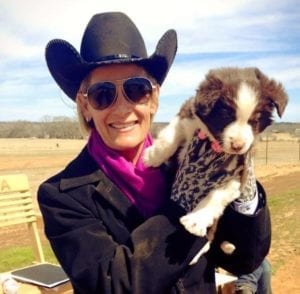 Karen Graham – I would have learned to invest my money better. That’s it! Oh ya, I wouldn’t get married because I would have had way more money. (laughs)
Karen Graham – I would have learned to invest my money better. That’s it! Oh ya, I wouldn’t get married because I would have had way more money. (laughs)
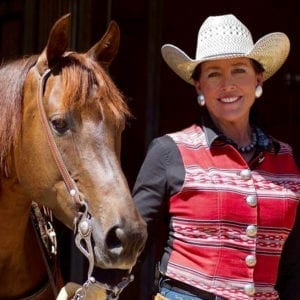 Laurel Walker Denton – The only thing I would change is, I would have made more time to ride with the top riders in the industry. Because I live in the middle of nowhere on the family ranch, it was difficult to find the time to get away and ride with the great horseman. In the nineties, Don Dodge spent a couple of summers at our ranch, what I learned was invaluable. Since then, I try to travel to Rio Verde to ride with the “big guys” as often as I can. You can never quit learning or looking forward to the future. I am so lucky to get on these great horses everyday. I owe them to be the best I can be.
Laurel Walker Denton – The only thing I would change is, I would have made more time to ride with the top riders in the industry. Because I live in the middle of nowhere on the family ranch, it was difficult to find the time to get away and ride with the great horseman. In the nineties, Don Dodge spent a couple of summers at our ranch, what I learned was invaluable. Since then, I try to travel to Rio Verde to ride with the “big guys” as often as I can. You can never quit learning or looking forward to the future. I am so lucky to get on these great horses everyday. I owe them to be the best I can be.
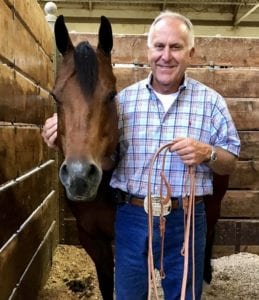 Larry Spratto – Slow down and enjoy the journey and keep a journal, so many highs and lows, great people, great memories.
Larry Spratto – Slow down and enjoy the journey and keep a journal, so many highs and lows, great people, great memories.
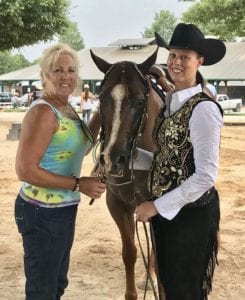 Adrienne Cober Dickerson – Starting out I wasn’t real sure how to handle clients over the years. I’ve learned and seen a lot of different ways and found my own way to deal with the normal situations you face being a horse trainer, from makeup artist to therapist to accountant. I’ve also learned so many different training techniques and have been able to develop my own style that fits me.
Adrienne Cober Dickerson – Starting out I wasn’t real sure how to handle clients over the years. I’ve learned and seen a lot of different ways and found my own way to deal with the normal situations you face being a horse trainer, from makeup artist to therapist to accountant. I’ve also learned so many different training techniques and have been able to develop my own style that fits me.
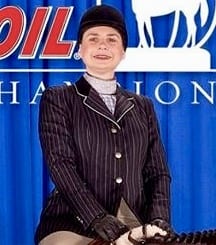 Stephanie McAlexander – I would have run for my life. Just kidding. In all seriousness, I wouldn’t change much. I’ve had some great teachers along the way and I’m still learning today after training professionally for 20 years. Looking back, taking more business and psychology courses in college would have been helpful. Sometimes, the hardest part of coaching people to show their horse to its potential is getting through their own anxiety so they feel confident in the pen. My road has not always been easy, but I hope I learn from every experience both good and tough. I’m able to live my life doing what I love and I wouldn’t change that for anything.
Stephanie McAlexander – I would have run for my life. Just kidding. In all seriousness, I wouldn’t change much. I’ve had some great teachers along the way and I’m still learning today after training professionally for 20 years. Looking back, taking more business and psychology courses in college would have been helpful. Sometimes, the hardest part of coaching people to show their horse to its potential is getting through their own anxiety so they feel confident in the pen. My road has not always been easy, but I hope I learn from every experience both good and tough. I’m able to live my life doing what I love and I wouldn’t change that for anything.
 Lainie DeBoer – I think the thing I would have changed was the feeling I had to have the biggest business in order to be successful. I grew really fast and I thought bigger was better. Knowing my personality, that was probably the wrong approach. I do better when my numbers are smaller and more manageable. I was spreading myself so thin, had too many horses, clients and employees. My overhead was crazy and it felt like I was not being as efficient. I realized there is only so much of me that I could give, while raising my own children, that I made myself really miserable. When I paired down my business to just a few quality clients and horses and made everything smaller, I actually became profitable and more successful. I wish I would have given myself time to get comfortable in my training shoes before I just jumped in. There are only so many hours in a day and so much of us. I value myself and what I do more now than I did back when I started. Bigger isn’t better.
Lainie DeBoer – I think the thing I would have changed was the feeling I had to have the biggest business in order to be successful. I grew really fast and I thought bigger was better. Knowing my personality, that was probably the wrong approach. I do better when my numbers are smaller and more manageable. I was spreading myself so thin, had too many horses, clients and employees. My overhead was crazy and it felt like I was not being as efficient. I realized there is only so much of me that I could give, while raising my own children, that I made myself really miserable. When I paired down my business to just a few quality clients and horses and made everything smaller, I actually became profitable and more successful. I wish I would have given myself time to get comfortable in my training shoes before I just jumped in. There are only so many hours in a day and so much of us. I value myself and what I do more now than I did back when I started. Bigger isn’t better.
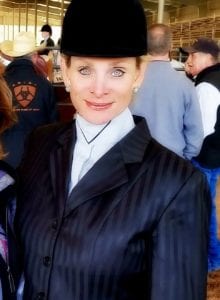 Angie Proctor-Reichert – If I knew then what I know now, I would have integrated calisthenics into my program from the start. Back in the 80s, the horses were broke out and ridden mostly in straight lines without much variation to speed or lateral movement. I integrated calisthenics into my program in the 90’s and that helped tremendously in suppling the horses body, as well as giving free lateral movement to help supple the legs, neck and backs. Calisthenics is the foundation of my program today for any age horse.
Angie Proctor-Reichert – If I knew then what I know now, I would have integrated calisthenics into my program from the start. Back in the 80s, the horses were broke out and ridden mostly in straight lines without much variation to speed or lateral movement. I integrated calisthenics into my program in the 90’s and that helped tremendously in suppling the horses body, as well as giving free lateral movement to help supple the legs, neck and backs. Calisthenics is the foundation of my program today for any age horse.
Are there things you wish you could change looking back earlier in your career? If so, share it with us.


